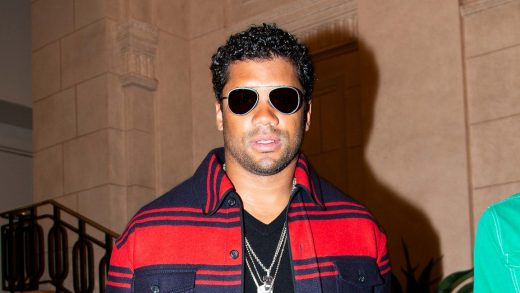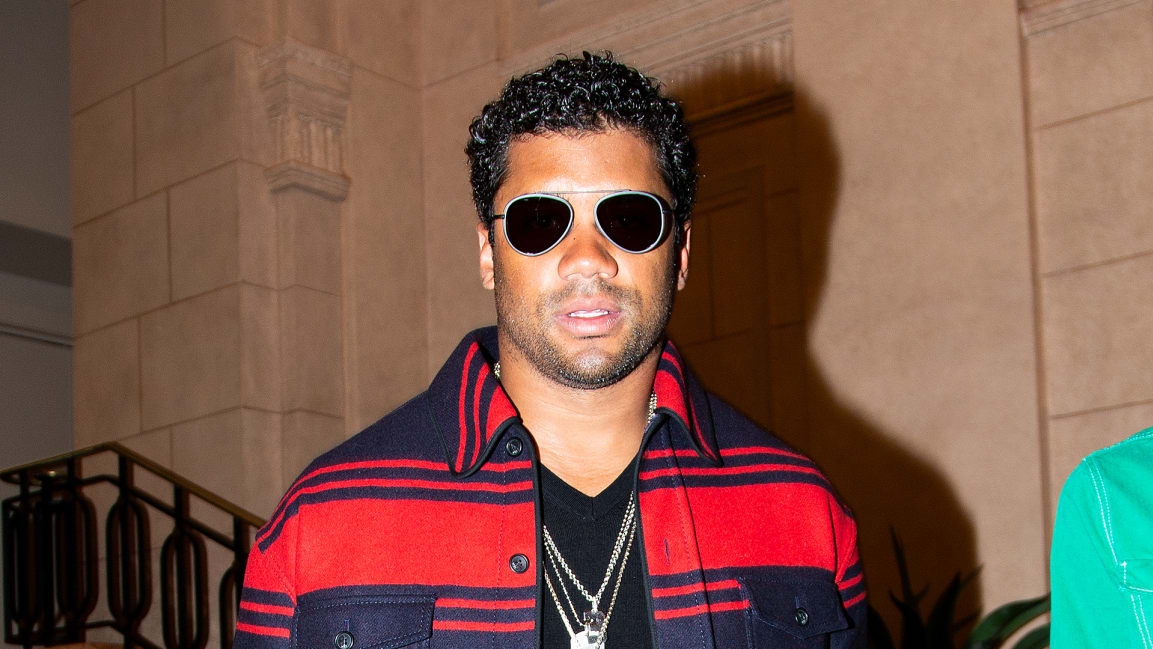Seattle Seahawks QB Russell Wilson talks secrets to success—and listening to Jeff Bezos
At just 30 years old, Russell Wilson became the highest paid football player in the NFL earlier this year when he re-signed his contract with the Seattle Seahawks for $140 million. Despite a cushy salary and a Super Bowl win under his belt as the team’s quarterback, Wilson internalized very direct advice way back during the rookie symposium after he’d been drafted.
“The guy gets up on stage, and first thing they say to you is, ‘What does the NFL stand for?’ And everybody kind of looks at each other, all the rookies, and we’re all 21 years old or whatever,” Wilson told Fast Company. “‘National Football League? Come on.’ And the guy says, ‘No. Not For Long.’ He says, ‘You need to start having plan B now.’”
Or plans B through E, if you’re Wilson.
In addition to an already physically tasking career, Wilson has his fashion label, Good Man Brand, his production company, West2East, the Jeff Bezos-backed gaming app Tally, and his philanthropic foundation, Why Not You.
“When you ask why I, quote-unquote, do so much, I think everybody has a certain amount of bandwidth. I’ve been fortunate to have a lot of bandwidth, and I think that’s because of how my parents raised me,” Wilson said. “My dad used to always ask me the question when we were in the car: ‘Son, you’re 25 years old. Son, you’re 30 years old. Son, you’re 40 years old. What are you doing? Where are you at? Paint the picture for me.’ And I would be 12 years old painting this picture. ‘That’s not good enough,’ [he would say]. ‘Give me a better one.’”
Wilson lays out the most important elements of his success and the most valuable advice he learned from Jeff Bezos:
Build a billion-dollar team
“You come up with an idea, and you find the best people in the world to help that idea come to life and make it work—and make it not just work, make it become excellent. Make it become elite. And I think that you have to find elite people. At the end of the day, if you have a billion-dollar idea, and you don’t have billion-dollar mindsets, that doesn’t matter.”
Be patient
“I’m a go-getter. I’m a nonstop, foot-down-on-the-pedal kind of guy. I think that with kids, the thing that I’ve learned more than anything else is just patience. Patience in decisions, patience in life, patience when you have kids running around the whole house, and you’re trying to hustle here and there. The more that you can slow down, the better you’re going to be. I don’t mean slow down in your efforts, though. I just mean slow down in your mentality, and in terms of just not worrying about stuff.”
Adversity is only temporary
“Adversity is temporary. To be able to realize that challenge is what prepares you to be great. There’s been nobody to the left, to the right, to the front, to the back of you, that’s come and gone, that hasn’t had a challenge. The most successful people, when adversity comes, they look forward to overcoming it. Unsuccessful people, when adversity comes, they hide behind it. The people that become successful are the ones that overcome it, and are willing to fight through things, and create–even when it’s not that interesting, or not the best situation.”
All you need is 22 people
“I think the most memorable thing [Jeff Bezos] said to me—we were just kind of hanging out, and I was asking about the beginnings of Amazon. Obviously, he’s created one of the biggest, largest, best companies in the world, and I said, ‘Jeff, when you were thinking about Amazon, did you think this could happen?’ And he said, ‘Did I think it would be exactly like this? All the things that we’re doing? Not necessarily.’ But he said, ‘I think anything can happen.’ And when I asked him, ‘So when you were creating Amazon, how’d you raise money? What happened?’ He said, ‘For me, I wanted to go raise a million dollars, so what I did was, I went to 60 plus people, and I said ‘Hey, give me $50,000. I got an idea.’ Only 22 people said yes. He said, ‘That’s all I needed. All I need is 22 people to say yes.’ Think about that. And when you think about that, there’s 7.5 billion people in the world. For 22 people to say yes to a small idea, that becomes one of the largest companies in the world? Anything’s feasible.”
(15)



